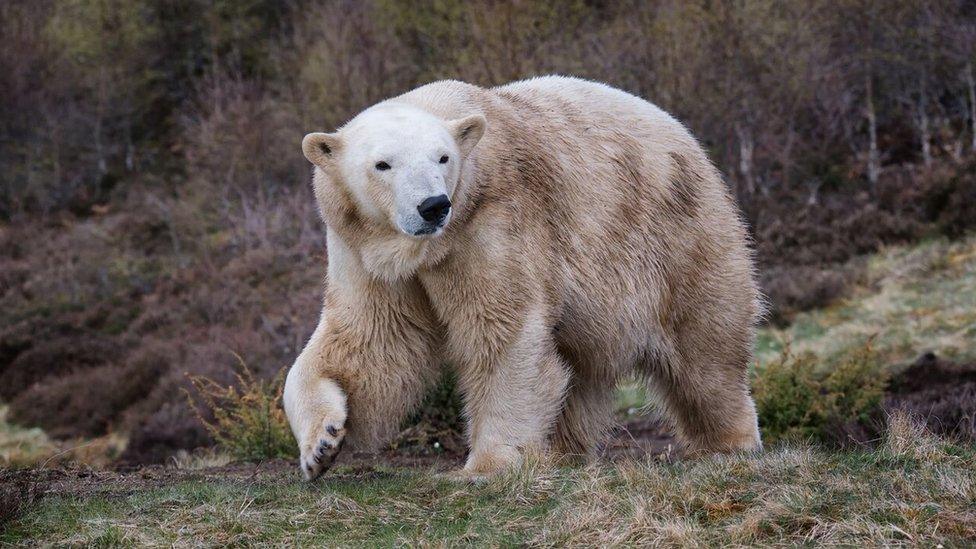History-making polar bear cub Hamish turns one
- Published
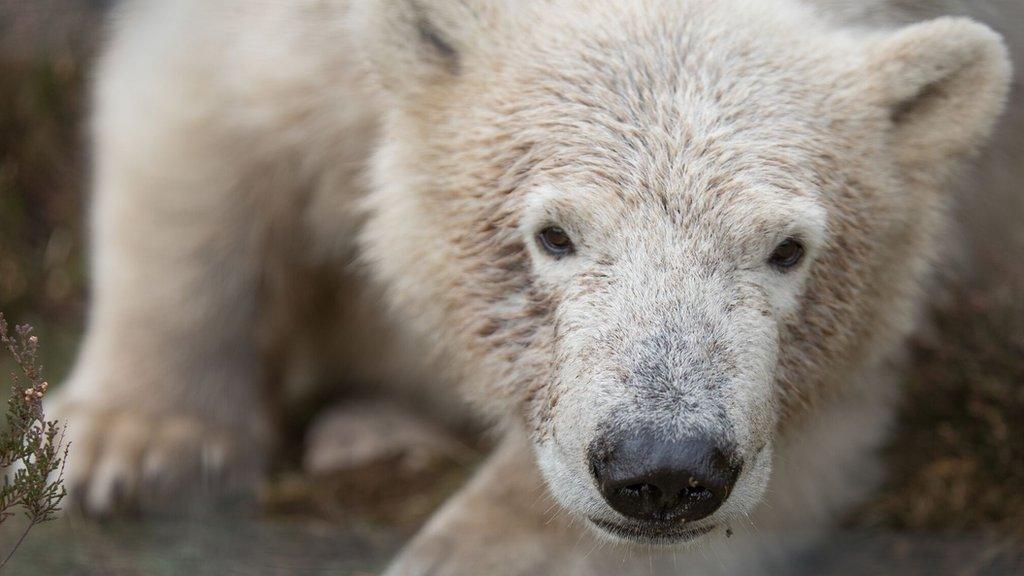
Hamish was born at the Highland Wildlife Park in the Cairngorms last December
The first polar bear cub to be born in the UK in 25 years has turned one.
Hamish shares an enclosure with his mother Victoria at the Royal Zoological Society of Scotland's Highland Wildlife Park at Kincraig, near Aviemore, in the Cairngorms.
Park staff have marked his birthday by giving him treats encased in an ice block and food hidden inside cardboard boxes.
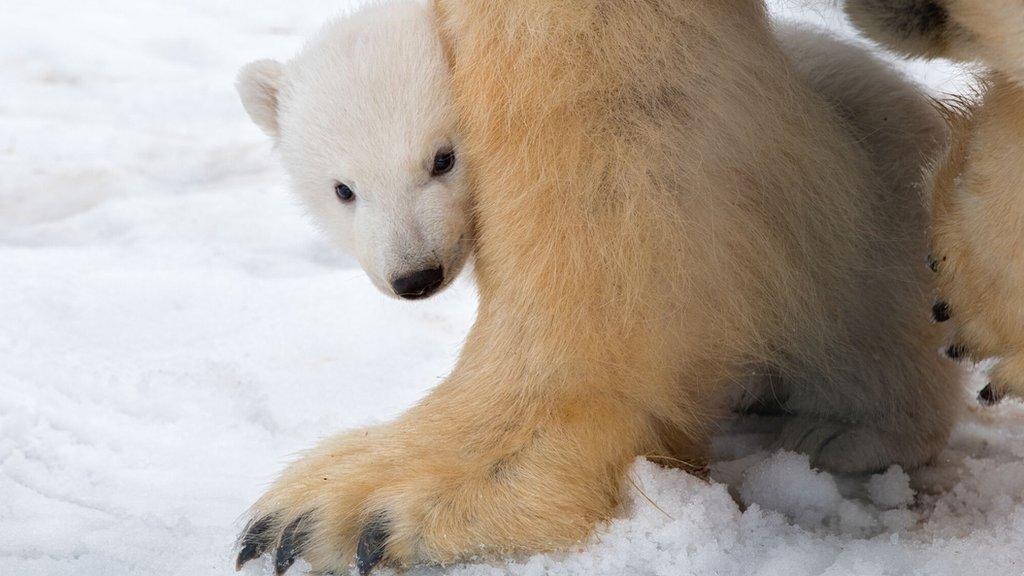
Hamish peeking round one of his mother's paws
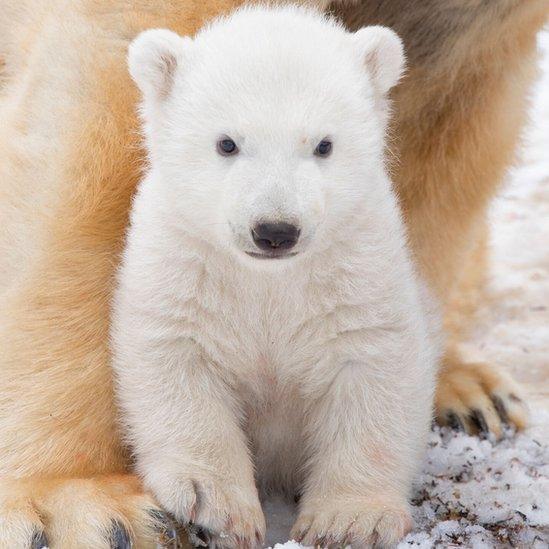
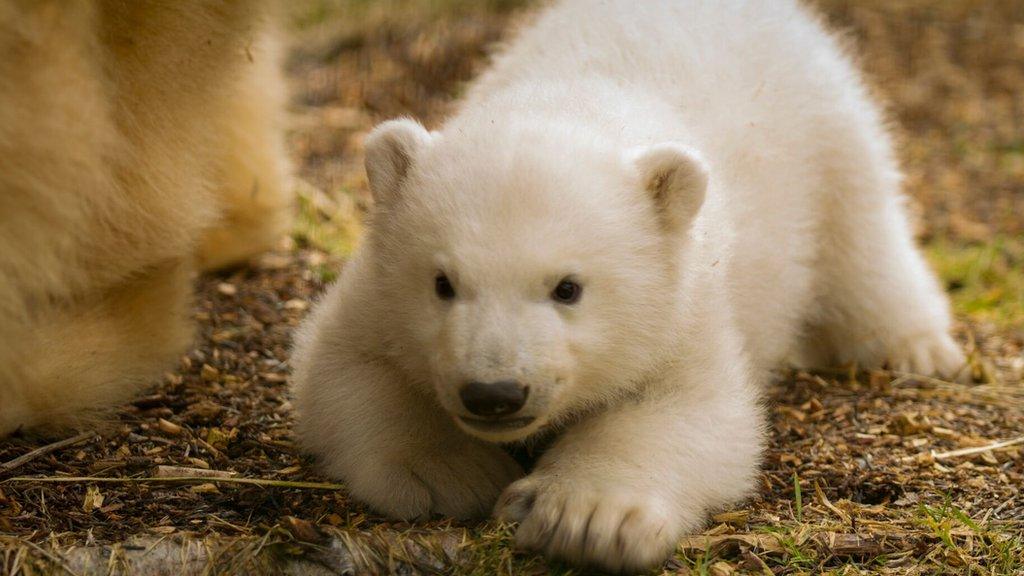
The cub when he was only a few months old
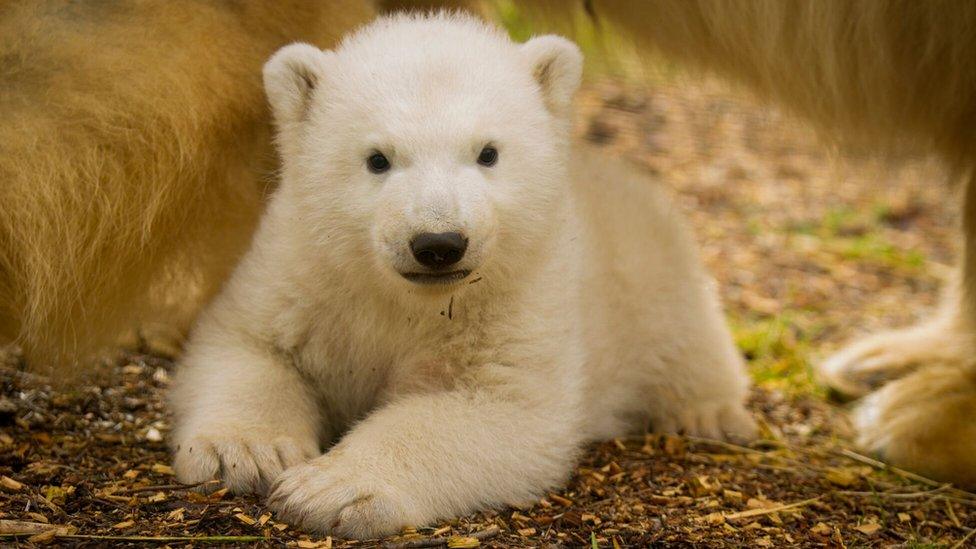
Hamish and his mother's enclosure was closed to the public until March
The cub's father, Arktos, is kept in an area in a different part of the park along with another adult male polar bear called Walker.
Before Hamish, the last polar bear cubs born in the UK were twins at Flamingo Land in Yorkshire on 8 December 1992.
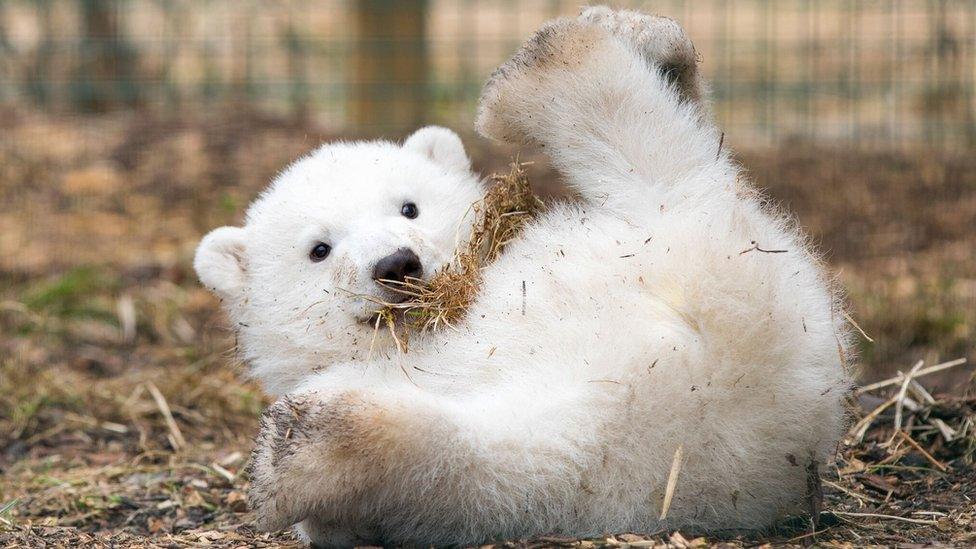
Once on public display, thousands of people visited the park in the hope of seeing the cub
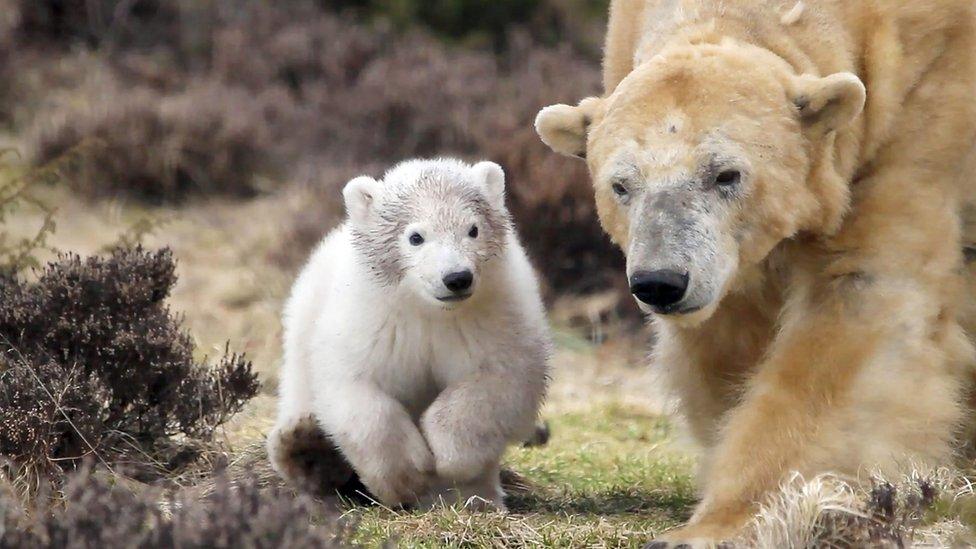
Hamish and his mother share an enclosure
For months in the lead up to Hamish's birth and after he was born, Victoria's enclosure was closed off to the public.
This was done in an effort to reduce the chances of causing stress to her while she was pregnant, and after giving birth.
Once the area was opened again to visitors in March, thousands of people started arriving at the park to catch a glimpse of the cub.
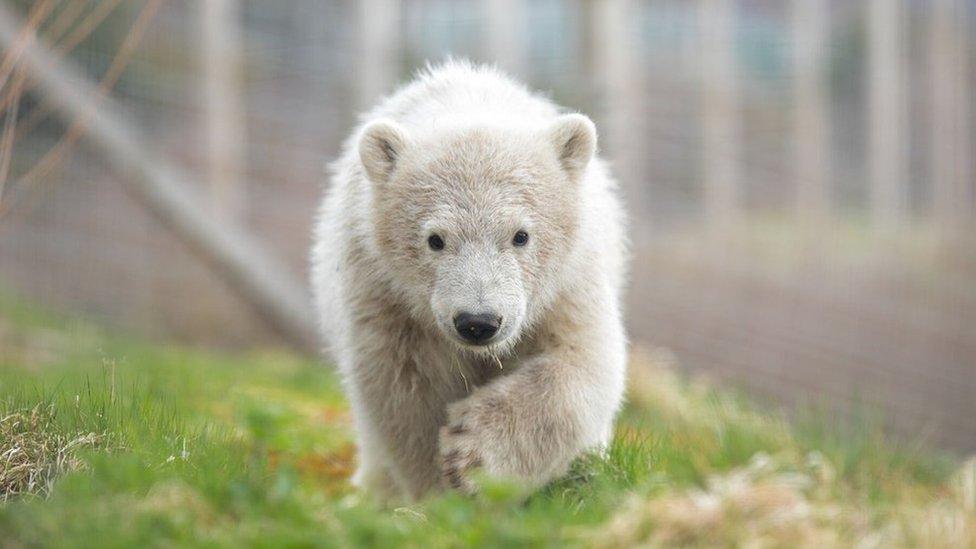
Hamish in a picture taken in the summer
Earlier this month, the zoo had its record 200,000th visit of 2018. The previous best year for visitor numbers was 2016 with 136,704 visits.
But some animal welfare organisations strongly oppose the polar bear breeding programme - saying conditions in the wild cannot be replicated in captivity.
Hamish's name was chosen through a public vote.
There were more than 36,000 votes with more than 21,700 for Hamish. The other options were Poulsen, MacKinnon and Artor.
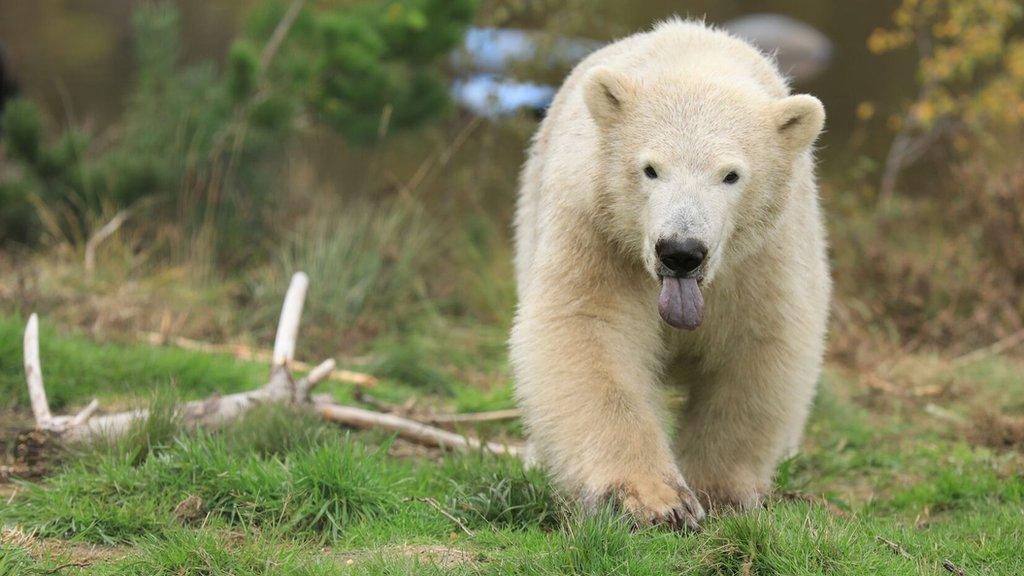
Hamish is now a year old
Else Poulsen was a renowned bear behaviourist, while MacKinnon is the name of a "dedicated supporter" of the park.
Staff said Artor was a Pictish name which directly relates to bears, as well as "a nod" to the cub's father, whose name Arktos means "bear" in Greek.
They said Hamish was "a strong Scottish name" that the park's keepers liked.
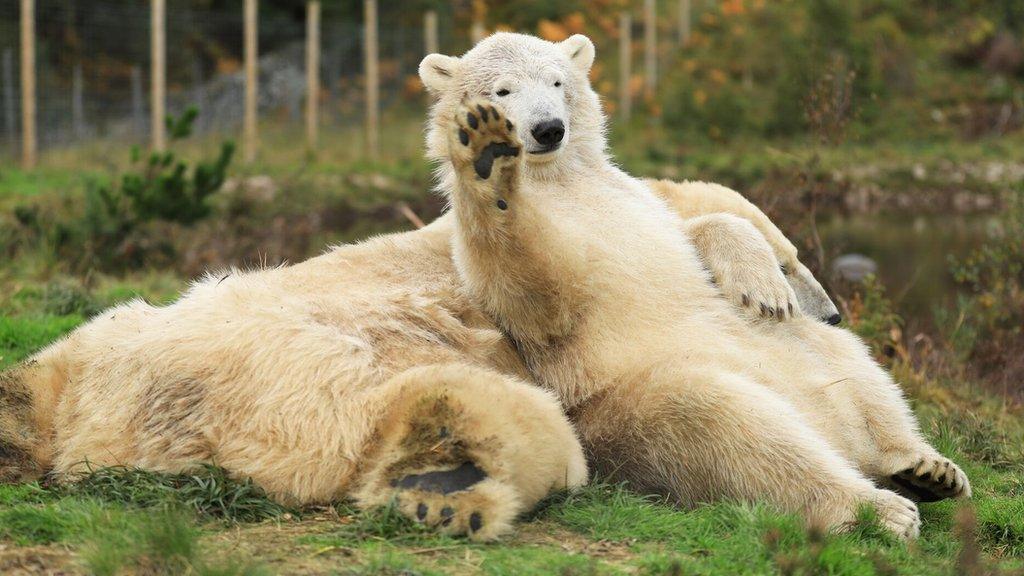
Park staff describe Hamish as "mischievous"
Una Richardson, head carnivore keeper at the park, said: "It has been an incredible year and we're really excited to be celebrating Hamish's first birthday today.
"We're hoping Hamish enjoys the day as much as us, and we've made him a special birthday cake made from ice and presents filled with his favourite treats."
She added: "Our mischievous cub has grown so much since he took his first steps outside in March and is rapidly catching up to his mum, Victoria, although he still has some way to go until he reaches his full adult size, as male polar bears can weigh up to 800kg."

Bear necessities: A brief guide to polar cubs
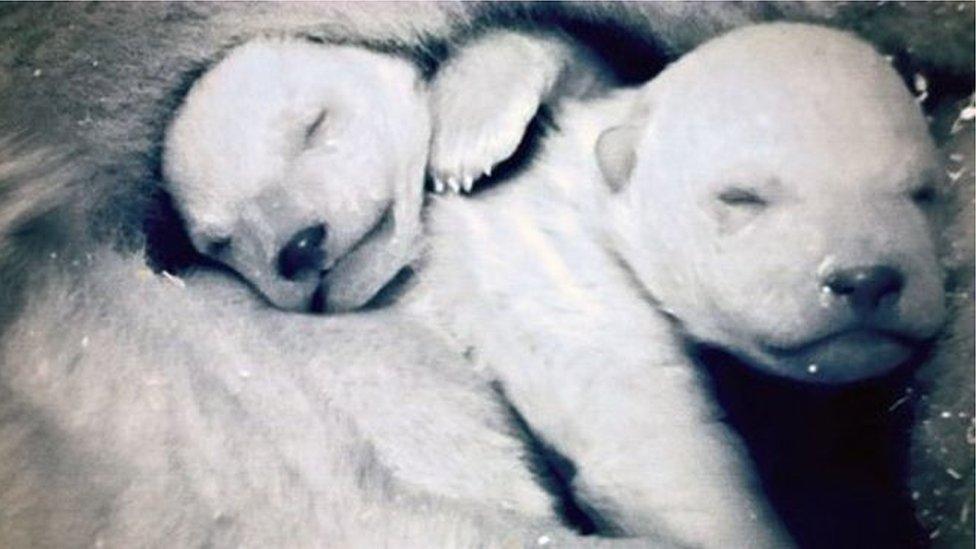
BBC's Frozen Planet featured adult bear Walker when he was still a cub
Polar bears mate between March and June
Females normally give birth to one or two cubs in November or December
Newborn polar bear cubs are blind, about 30cm (12in) long and weigh little more than a guinea pig. They only open their eyes when they are a month old
Victoria, who was born in 1996 at Rostock Zoo in Germany, previously gave birth at Aalborg Zoo in Denmark in 2008. She arrived at RZSS' Highland Wildlife Park in March 2015
Male bear Arktos arrived at the park in April 2012 from Hanover Zoo in Germany. He was born in 2008 at Vienna Zoo
Arktos shares an enclosure with another male, Walker, whose own time as a cub was the source of a controversy over the BBC's Frozen Planet documentary
All images are copyrighted.
- Published13 December 2018
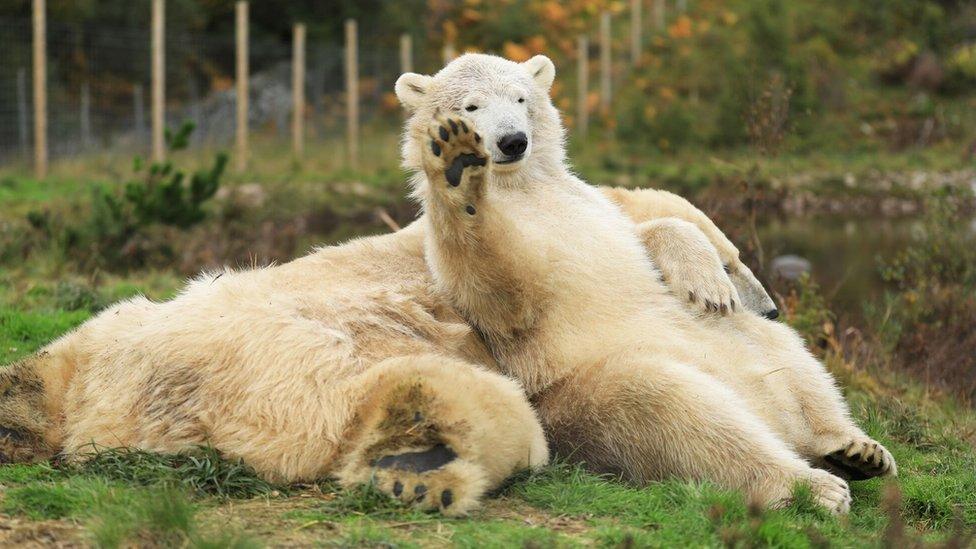
- Published29 June 2018
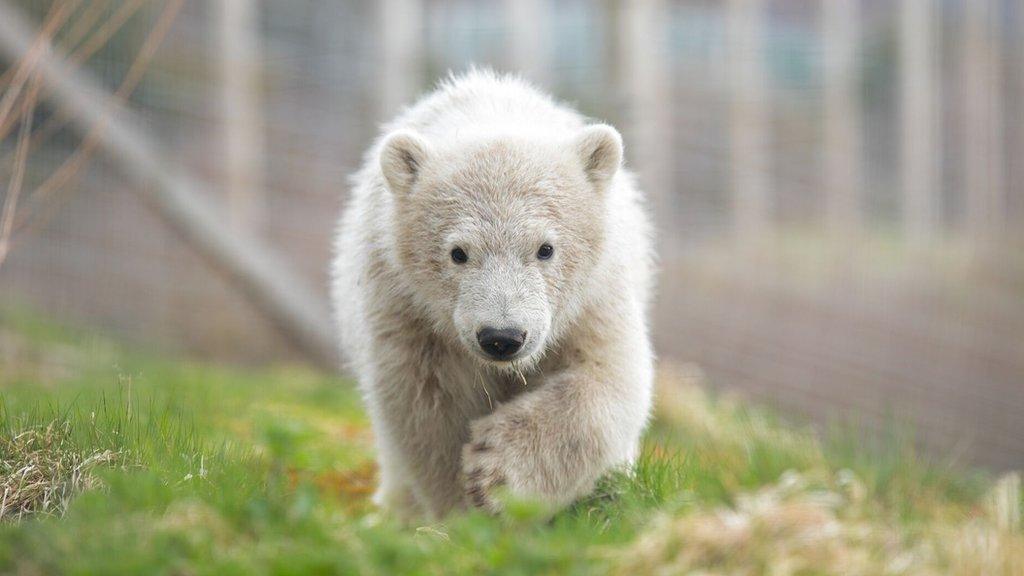
- Published26 April 2018
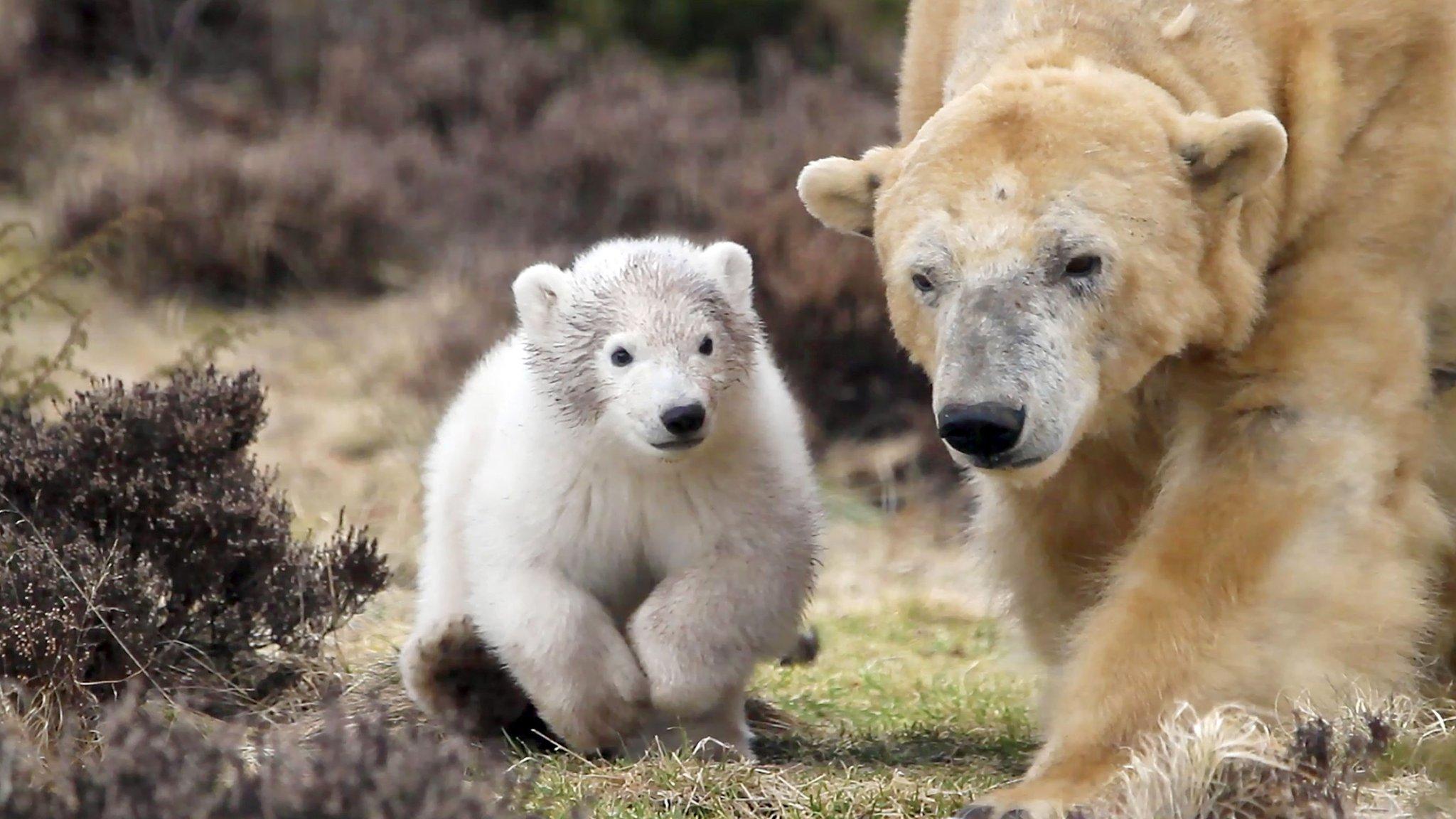
- Published20 April 2018

- Published16 April 2018
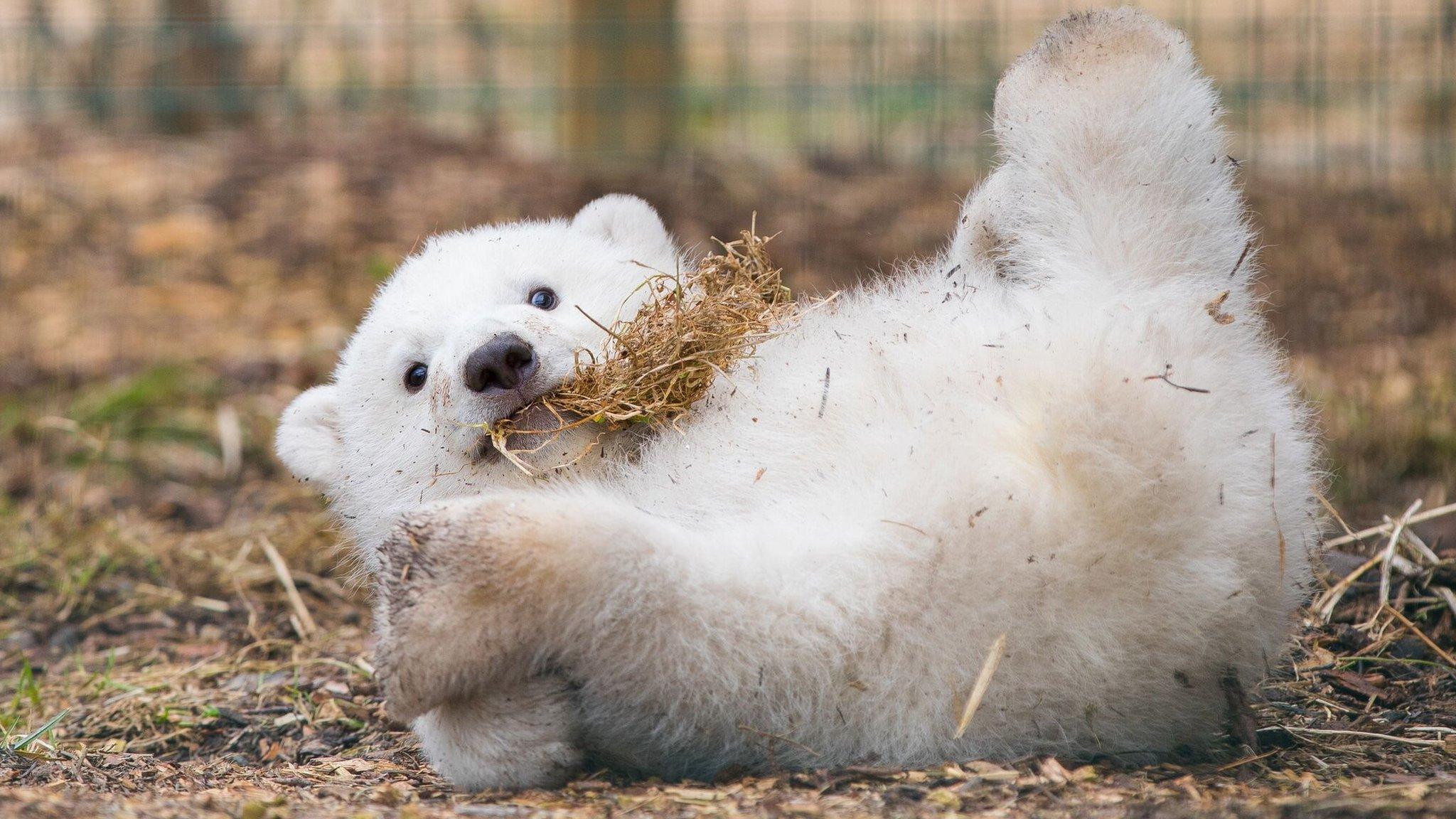
- Published20 March 2018

- Published7 March 2018
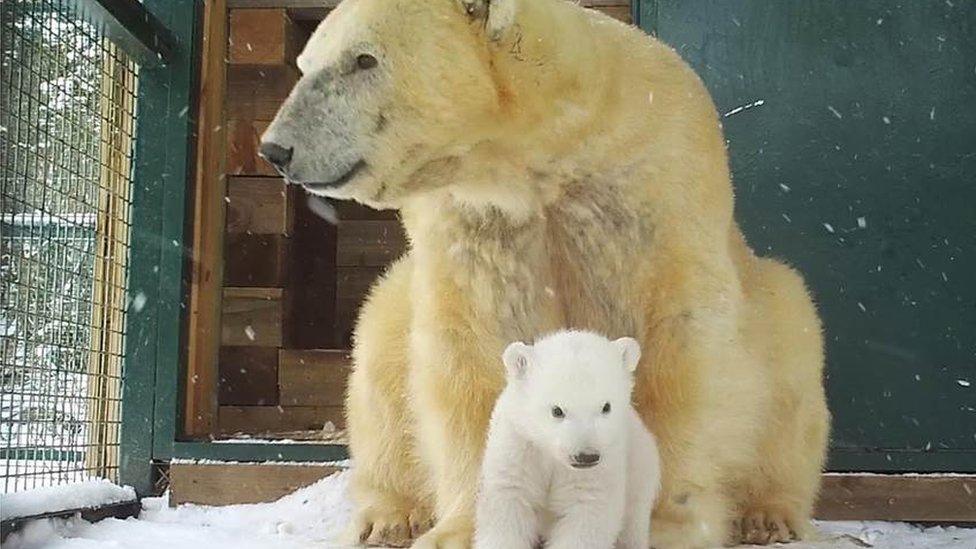
- Published3 January 2018
